The Problem of Evil: A quranic Perspective on Suffering and Divine Wisdom

How can evil exist if God is all-powerful, all-knowing, and merciful? Why do we see so much suffering? These questions lead to what we refer to as “the problem of evil.”
In fact, this is the single biggest obstacle for spiritual seekers. I commissioned George Barna, the public-opinion pollster, to conduct a national survey in which he asked a scientifically selected cross- section of adults: “If you could ask God only one question and you knew he would give you an answer, what would you ask?” The top response, offered by 17 percent of those who said they had a question, was: “Why is there pain and suffering in the world?”
The Case for Faith: A Journalist Investigates the Toughest Objections to Christianity, Page 29] .
In Islam, the issue of evil is not considered a problem. The Quran provides clear and logical answers regarding the existence of evil, which we will explore later in this article.
Muslim scholars interpret suffering and evil through the lens of God’s Wisdom, Knowledge, Benevolence, Will, and Power. In contrast, many atheists see the existence of evil as a substantial challenge to the typical Western conception of God, especially the all-powerful, all-knowing deity of orthodox theism. Advocates suggest that if evil has no explanation, then “belief in the traditional Western idea of God is irrational.” However, if there is a valid explanation for evil, the impact of this argument lessens.
The principal argument for atheism
Contrary to what one might think, the principal argument for atheism is not scientific or empirical but rather a psychological and philosophical one: the argument of evil.
Consequently, William Rowe, the originator of the evidential version of the problem of evil, referred to it as an argument for atheism rather than simply the Probabilistic version.
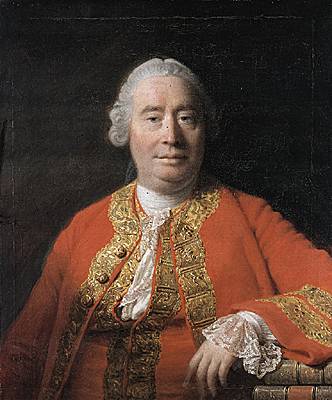
Certain philosophers, including Scottish thinker David Hume, have referred to the issue of evil as “the rock of atheism,” implying that atheistic beliefs can be grounded solely in this dilemma. Similarly, George Bΰchner, a German poet and atheist, characterizes the problem of evil as “the immovable block of atheism” [Randy Alcorn If God is Good: Faith amid Suffering and Evil p. 11].
The atheist philosopher Stephen Law, in his debate with William Lane Craig on atheism in 2011, practically settled for the problem of evil to deny the existence of the Creator. In another William Lane Craig debate, this time with Michael Tooley, the latter announced that the principal argument for atheism is the problem of Evil.
By providing the correct answer to the problem of Evil, Islam puts an end to a long debate and destroys the main argument of atheism.
Formulating the Problem of Evil
We can distinguish two forms of the problem of evil:
- The Logical Version of the Problem of Evil
- The Probabilistic version problem of evil
Logical Version of the Problem of Evil
The logical or a priori problem seeks to demonstrate that it is logically impossible for God and evil to coexist. We can Formulate The Logical version of the Problem of Evil as follows:
- P1. If there is a god who is all-powerful, all-good, and all-knowing, then evil cannot exist.
- P2. Evil exists in the world.
- C1. Therefore, an all-powerful, all-good, and all-knowing god does not exist.
While it rose to prominence in the 1960s, most contemporary philosophers and theologians view the Logical version of the Problem of Evil as a failure. Nonetheless, this article will address it.
Probabilistic version of the problem of evil
The Evidential or a posteriori problem considers that although God and evil can logically coexist, the apparent contradiction constitutes an argument against theism. The reductive thesis that evil exists harms God’s omnipotence because it theoretically reduces his natural qualities. In other words, the existence of evil, even if it doesn’t eliminate the existence of God, undermines the vision of the mighty and merciful God theists believe in.
Beneath the Probabilistic version of the problem of evil lie three sub-categories of evil:
- Human-inflicted evil: The issue at hand is why God allows humans to perpetrate evil and injustice (such as killing and mistreatment); this also encompasses evils indirectly caused by humans, like global warming or the extinction of polar bears.
- Natural evil refers to events not directly caused by humans, such as volcanic eruptions, tragic deaths, and epidemics.
- Free evil refers to evils that the atheist considers God could have prevented and that have no visible wisdom behind them, such as the death of a newborn baby or the death of animals in forest fires.
The wrong answers to the problem of evil and the role of the Quran
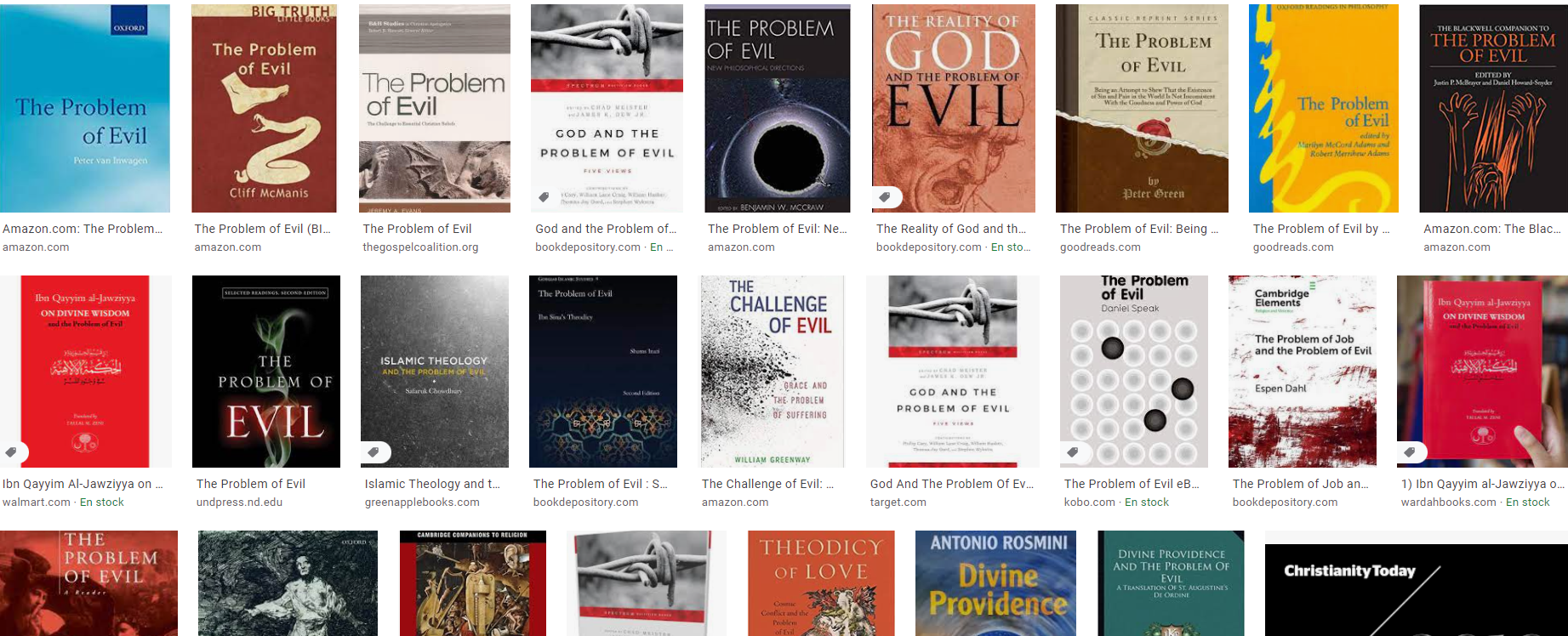
Anyone who examines the literature on evil will notice the significant intellectual effort devoted to understanding the issue. Many brilliant thinkers have suggested solutions, yet these answers often struggle to address all facets of the problem. As they respond to one aspect, they frequently overlook another, resulting in unrealistic or unfounded conclusions.
This has prompted atheistic philosophers to believe that the problem of evil remains unresolved, leading them to raise this argument in every debate with theists.
First, let’s examine some incorrect responses to the problem of evil :
Wrong answer 1: That evil doesn’t exist
According to this vision, evil doesn’t exist – it’s just an illusion or an imagination of a non-existent fact.
Adherents of this view are to be found mainly among Hindus, for whom evil is just a Maya (illusion). This view doesn’t require much effort to refute because evil is a fact, and even if we consider it an illusion, then the illusion of evil is itself evil because it is always a painful experience.
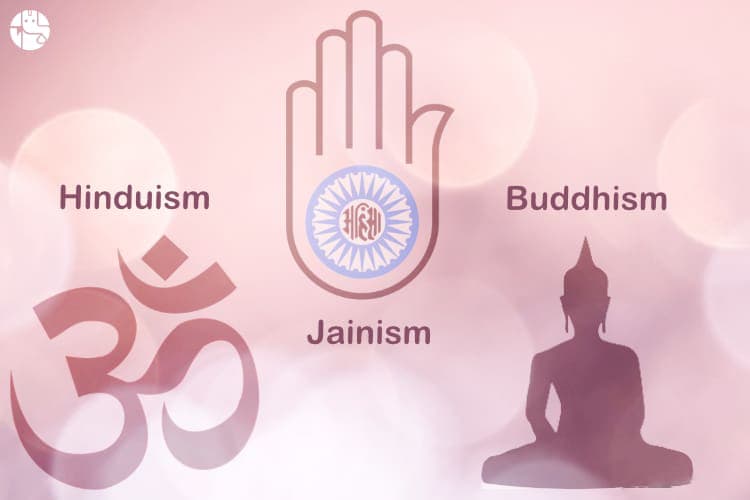
Conversely, Buddhists hold that all existence is defined by “suffering,” asserting that escaping it requires attaining nirvana. This belief contradicts our innate sense of happiness and pleasure, as well as the observable order and beauty in the world around us.
Wrong answer 2: Evil is a mystery
This saying suggests that evil is merely a mystery shrouded in an undetectable veil, preventing us from labeling it as “evil” since it remains an absolute enigma beyond our comprehension.
This viewpoint rejects the existence of both good and evil in the universe. If we don’t understand God’s intention behind evil, we also miss His intentions behind good, resulting in total uncertainty, even though evil clearly exists in the universe. Allah mentions in the Quran:
Wrong answer 3: A single answer to the problem of evil,
The problem of evil involves many different kinds of evils, each needing its own explanation. So, answering the issue of evil with a simple statement like “Evil comes from human free will” is not enough, as it only looks at human evil.
An atheist cannot expect a one-size-fits-all answer to the problem of Evil; instead, he must consider the responses to each type of evil and await answers for the other forms of evil.
Wrong answer 4: Denying the names of God
In “When Bad Things Happen to Good People,” Rabbi Harold Kushner offers an unconventional perspective. He argues that God is good but not all-powerful, thus unable to address the issue of evil.
Kushner, in essence, dismisses the qualities and designations of Allah when discussing the origin of evil. While this perspective is largely rejected by most Jewish and Christian theologians, it is not a Kushner invention; the Torah, modified by human hands, contains the seeds of this idea.
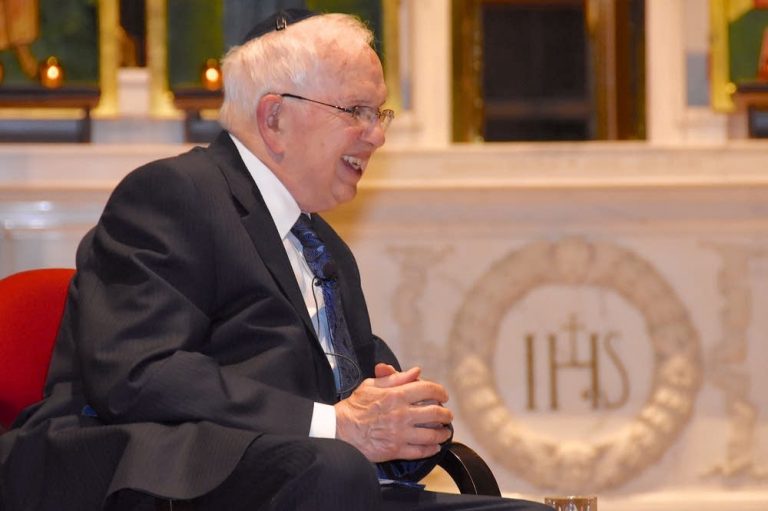
Why the problem of evil persists
Answers to the problem of evil can become problematic in two situations:
- When the answer completely ignores divine revelation.
- When the answer contradicts the theology and beliefs of the responder.
In the first scenario, philosophers and intellectuals attempting to address these questions without considering divine revelation often limit themselves to personal viewpoints. This limitation leads to a variety of conflicting statements, such as the notion of a dual divinity (a “god of good” and a “god of evil”) or the idea of a God who, as Aristotle imagined, left the universe after its creation.
In the second scenario, we encounter theologians who offer logical responses to the issue of evil. However, their answers are often influenced by their specific theological perspectives. This is particularly evident among Christian theologians, who, while attempting to address the problem of evil, usually find themselves contradicting their own beliefs. They struggle to harmonize the concept of God as “pure love” with the existence of evil and human suffering. As a result, they devise convoluted justifications for various forms of evil.
In contrast, in Islam, Allah is described as Alwadud (Al-Wadûd: The Loving and the Beloved, the Constant in Love, the All-Affectionate). Additionally, He embodies justice and wisdom. His love for his creatures is sometimes expressed through testing them with both good and evil, ultimately drawing them closer to Him.
The role of the Quran
It’s essential to highlight an epistemological perspective: the issue of evil should be viewed through the lens of divine discourse in the Quran rather than our flawed interpretations of surrounding events, which we label as “good” or “bad.”

Muslims believe the Quran is the unchanged, preserved, and inimitable Word of God, a source of guidance for all mankind and a rationally justified epistemological source. Furthermore, while those who reject Islam may not consider the Islamic solution to the problem of evil as an objective solution, opponents cannot claim that it is not a logically coherent and rationally justified solution to this problem. In fact, the rationally justified Islamic paradigm demonstrates that the problem of evil is not really a problem at all.
The existence of God and the existence of Evil: the Logical Version of the Problem of Evil
The existence of evil and the existence of God are two distinct issues that should not be confused. Many people assume that, since evil exists, God must either be unconscious, indifferent, or unable to remove it. Because God is understood to be omniscient, all-merciful, and omnipotent, the assumption is that the existence of evil implies that God must not exist. However, even Richard Dawkins himself, the iconic father of the new atheism, declares that simply imagining God as cruel is a logically plausible solution to this impasse. He writes:
“[The problem of evil] is an argument only against the existence of a good God. Goodness is no part of the definition of the God Hypothesis, merely a desirable add-on. […] for a more sophisticated believer in some sort of supernatural intelligence, it is childishly easy to overcome the problem of evil. Simply postulate a nasty god – such as the one who stalks every page of the Old Testament.”
[Richard Dawkins, The God Delusion (London: Bantam Press, 2006), p. 108]
Believers, of course, reject this Dawkinian aberration of the “wicked God” but argue that it’s enough for God to have a moral reason for the existence of evil for the whole Logical version of the Problem of Evil to fall apart, which is why agnostic philosopher Paul Draper explains:
Although logical arguments from evil seemed promising to a number of philosophers in the 1950s and 1960s (eg. Mackie 1955), they are rejected by the vast majority of contempoary philosophers of religion…
In order for a logical argument from evil to succeed, it is necessary to show that, for some known fact about evil, it is logically impossible for God to have a good moral reason to permit that fact to obtain. This, however, is precisely what most philosophers nowadays believe cannot be shown
Paul Draper, “The Problem of Evil,” in The Oxford Handbook of Philosophical Theology, ed. Thomas Flint and Michael Rea (Oxford: Oxford University Press, 2011), 335.
Atheist philosopher William Rowe, whose arguments will be examined in the probabilistic version of the argument, said:
Some philosophers have contended that the existence of evil is logically inconsistent with the existence of the theist God. No one, I think, has succeeded in establishing such an extravagant claim. Indeed, granted incompatibilism, there is a fairly compelling argument for the view that the existence of evil is logically consistent of the theistic God.
William Rowe, “The Problem of Evil and Some Varieties of Atheism,” American Philosophical Quarterly 16, no. 4 (1979): 335–41.
Since the Logical version of the Problem of Evil is one that most philosophers no longer find relevant or resilient, we move on to the Probabilistic version of the problem of evil.
The Probabilistic version of the problem of evil and the answers of Islam
As mentioned above, the Probabilistic version of the problem of evil has three main facets (moral evil, natural evil, and gratuitous evil), so we will provide an appropriate response to each of these facets.
Moral evil or evil caused by man
Why doesn’t Allah prevent men from committing unethical acts? We know that Allah doesn’t do anything without there being a wisdom behind it, having this in mind we can examine where moral evil lies in the divine plan on earth.
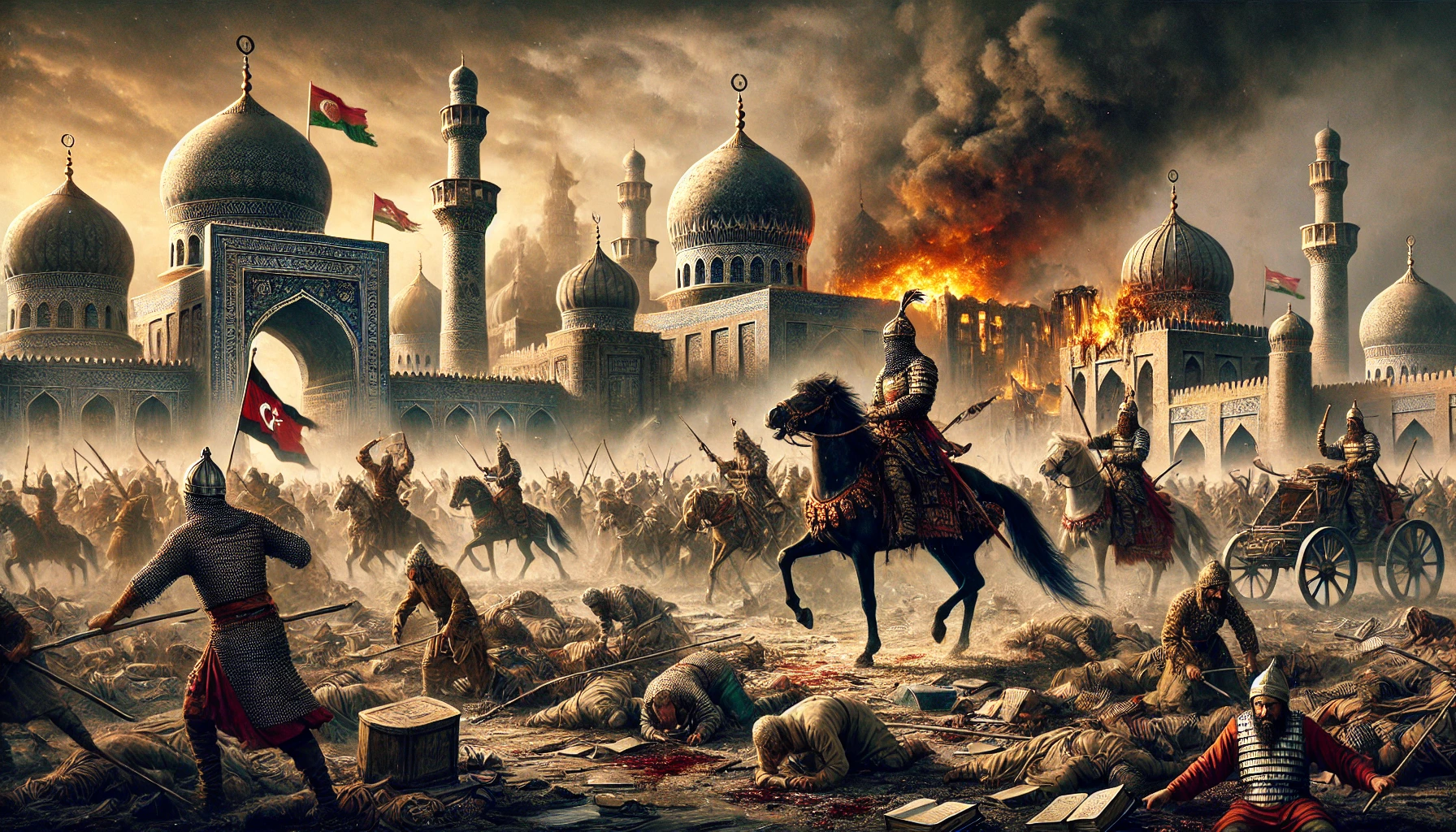
Evil as the result of free will
The logical by-product of free will is that many individuals will abuse their free will and violate the rights of other human beings, animals, and the environment. The fact that humans were created with free will necessitates that some individuals use their free will to spread corruption throughout the world. This logical by-product is perhaps why the angels asked:
Allah’s answer was enough for the angels, for they understood that Allah’s Wisdom and Knowledge were beyond their capabilities.
God could have made us all excellent beings by forcing us into obedience. But to do so would have meant depriving us of our freedom of choice.
Of course, we will be judged by God on the Day of Resurrection for all our actions. Those who in this world have disbelieved and committed abominable acts will be judged by God unless they repent and regret their actions:
Natural evil
Anything not directly caused by man – volcanoes, tragic deaths, epidemics – does not include indirectly man-made evils such as global warming or the death of polar bears, which fall into the first category.
Muslims believe that there is no such thing as absolute evil and that all evil, whatever it may be, has a wisdom behind it that leads to a greater good, as Ibn Qayyim al-Jawziyya states:
Evil, as an independent phenomenon in which no dimension of good is involved, has no existence in this world. There is nothing in our existence that can be called pure evil, because every evil in this world is good from one angle or another.
For example, illness harms the body from one angle, while from other angles it tests patience, evokes resilience and can even boost immunity. The most hated things are usually in this way; never devoid of one benefit or another for the human being.
Ibn al-Qayyim, Shifā’ al-‘Alīl fī Masā’il al-Qaḍā’i wal-Qadari wal-Ḥikmati wat-Ta‘līl
Understanding the nature of this life
Earthly life as a test
One of the reasons why the problem of Evil has become more acute over the last two centuries is that life is seen as purposeless. The gradual reorientation of Western mentality from “purpose of life” to “quality of life” was a by-product of the European Enlightenment of the 18th century.
When the totality of existence is reduced to this one life, and life is no longer seen as a means to a more excellent end, we can expect that securing immediate pleasure and avoiding pain will become the only goals – and unattainable ones, of course.
Now Islam proposes to return to the original purpose of man’s creation, to the fact that this life is only a passage towards eternal life and that we are all travelers towards our final destination.
This life is thus a house of trial, and success in the trial guarantees eternal happiness, so evil and suffering in this world are only tools of this trial:

Comparing life here below with eternity hereafter
By measuring our ephemeral lives in this world against the life hereafter, the problem of evil and suffering disintegrates. What are 70 years of supposed misery measured against, not 70,000 billion, but endless years of unimaginable happiness? Conversely, reducing our existence to this one life is what negatively amplifies our perception of life’s “unjust” moments. A Muslim sees the hereafter as an inevitable reality, one that dwarfs our existence in this life to almost nothing, as the Prophet said :
Ali b. Abi Talib (may Allah be pleased with him) described in more detail this moment of arrival in the Hereafter and how it will make this whole life seem almost like a dream, saying:
People are deeply asleep. Once they die, they wake up.
Ali b. Abi Talib – cité par Imam Suyuti (ra) dans ad-Durar al-Manthura (427)
All suffering disappears in the afterlife
It’s common to find atheists aggregating incidents of evil in the world, piling them together to evoke the emotions of their audience, and trying to persuade people to get angry with God. By appealing to emotion, they seek to highlight these pains and sufferings as if they were not exceptions but the rule.
However, even if these manipulative tactics went unnoticed, the evidence-based convictions of a Muslim in the hereafter would still be enough to counter them. For example, the Prophet ﷺ said in a profound tradition:
This person will not lie but will forget all previous difficulties with this one plunge into ecstasy. In the blink of an eye, this person who has been disadvantaged, pitied, and “wronged” in the world will become the object of intense admiration for billions of previously “privileged” spectators; the Prophet said:
Is life unfair? Yes, but only if you don’t believe in the hereafter.
Human suffering, the misfortunes faced by the innocent and the claim that “life is unfair” are all legitimate grievances, but only if belief in the afterlife is denied. The ugliest atrocities such as those committed by Hitler and Stalin, or those perpetrated against Hiroshima and Nagasaki, and the saddest crises such as those of starving children collectively amount to almost nothing compared to eternal life.
The Prophet invoked God for this piercing insight, praying in many gatherings for “the certainty by which You would relieve for us the calamities of this world. “Sunan at-Tirmidhi(3502) For those who understand the eternal nature of the hereafter, being asked to “explain a child raped and then killed” does not shake them, for they compare the ordeal of a moment to an endless pleasure that improves with time and never fades.
In reality, it is atheism that must tackle the problem of evil, not those who see this life with all its difficulties as a shadow world next to the enjoyment of the next life. The believer whose mind is illuminated by revelation understands that just as the dead earth is brought back to life every spring, and just as we were not alive and came back to life before birth, our death will not be our end but rather just the beginning – the transition to a new life where every boredom and pain will be forgotten.
This life is a field of labor for eternal life
It’s interesting how some people scoff at the pursuit of paradise but at the same time embrace years of painstaking study in order to get a degree, put food on the table, and have a roof over their heads. To secure a home with limited walls (no matter how small) and food for energy (no matter how delicious), we all consider it fair to invest and work hard for years, but some find it unfair to work for unimaginable endless happiness.
In reality, however, no matter what ambitions are realized here, what pleasures have been guaranteed and what “evils” have been avoided, we haven’t really come away with anything other than a drop from an ocean. The Prophet said:
Therefore, although a conscious Muslim sees the problem of evil as giving more meaning to this life, and thus remains safe from nihilism and apathy, he or she simultaneously sees life’s problems as seeds for cultivating one’s true life in the hereafter.
Evil to purify oneself of sin and raise one’s status
The “evils” also serve as a cleansing mechanism for overlooked wrongs and what some scholars call (relatively) minor sins. The Prophet said:
Another account states:
The Prophet similarly asserted that it is through God’s mercy that believers will live through devastating times:
In his book Ḥādī al-Arwāḥ, Ibn al-Qayyim explains the therapeutic function of pain in this world and the next, saying:
The wisdom of Allah necessitated that He appoint an appropriate remedy for every disease, and remedying the misguided requires the most difficult remedies [to endure]. A compassionate doctor may cauterize the sick person, searing him with fire over and over again, in order to remove from him the foul elements that sabotaged his natural state of health. And if [this doctor] sees that amputating the limb is better for the sick person, he severs it, causing him by that the most severe pain. This is the fate which Allah destined for eliminating extraneous elements which undermine good health against a person’s will, so what about when the person willfully chooses to admit toxic elements upon his pure soul? When the intelligent person reflects on the laws of Allah (the Blessed and Exalted), His destined decree in this world, and His reward and punishment in the hereafter, he finds them perfectly suitable, appropriate, and interconnected. This is because it is all sourced in perfect knowledge, impeccable wisdom, and showering mercy. And indeed, He – the Glorified – is the True Supreme King, and His kingship is one of mercy, graciousness, and justice.
Ibn al-Qayyim, Ḥādi al-Arwāḥ, pp. 756-761
Legendary boxer Muhammad Ali (may Allah have mercy on him) is widely quoted as saying of his struggles with his latest illness, “God gave me Parkinson’s to show me that I’m not ‘the greatest’, he is .” He realized that he might have remained unconscious had God not purified him of his years of arrogance through this disease.
For Ali, tasting helplessness was more priceless than his boxing legacy, his monetary gains and his fight against an unjust war, for he understood that all this would soon crumble with his bones at the end of his life.
As for Parkinson’s disease, he saw it as the ultimate blessing in disguise, which might well grant him God’s love and companionship forever. In this vein, do we understand the Prophet’s statement:
It should be noted that, from the Islamic point of view, this test of effort involves preserving or returning to purity, not overcoming “inherent evils”.
God created man with moral righteousness;
Secondly, God has endowed us with the ability to discern good from evil:
and God sent us into this life to have our minds, hearts and limbs examined:
If we steer clear of bad influences and wrong ideas, we will stay honest in everything we do. God has also given everyone a natural goodness that helps them resist the hostile forces trying to harm their true nature.
Thus, upright individuals and their inherent fiṭra fundamentally define what it means to be human. The forces that lead us toward wrongdoing serve as a test in life; however, they exert influence only when we permit the voice of our God-centered fiṭra to diminish and when its divine light is not nourished.
Good cannot be recognized without the existence of evil
Good and evil are two sides of the same coin, an inseparable cosmic pair that needs each other to exist. Value cannot exist without peril, forgiveness cannot exist without offense, and perseverance cannot exist without obstacle.
The delight of satiety is known only to those bitten by hunger, and the sensation of quenching is savored only by those who are thirsty. Evil must be manifested in order to attain the virtue of overcoming it. As Hubert S. Box writes in The Problem of Evil:
Hubert S. Box, The Problem of Evil (London: The Faith Press, 1934), p. 56
Only with the possibility of failure do we deserve the reward for triumph.
Therefore, there must be some imperfection in humans and in their world to serve as a spark to the flames of good that we are meant to ignite around us. We will savor nothing of our lives on this earth unless we also taste its bitterness on our tongues and feel its regrets run down our cheeks.
Explaining how pain is the vessel in which pleasure is delivered, Ibn al-Qayyim says:
His Wisdom (the Glorified) determined that happiness, pleasure, and comfort are not reached except by the bridge of difficulty and fatigue, and that they are not accessed except through the gates of hardship, patience, and enduring difficulties. For that reason, He surrounded Paradise with hardships and Hellfire with temptations.
For that reason, He expelled His chosen one, Adam ﷺ, from Paradise despite having created it for him; His wisdom necessitated that he not enter it permanently except after difficulty and hardship. Therefore, He did not remove him from it, except to readmit him to it a more perfect admission. Only God knows the disparity between the first entrance and the second. What great disparity exists between the Messenger of Allah’s ﷺ entering Mecca under the protection of al-Muṭ‘im b. ‘Adi and his entering it on the Day of Conquest.
What great disparity exists between the pleasure and comfort of the believers in Paradise after enduring what preceded it, and their pleasure had they been created inside it. What great disparity exists between the joy of someone He relieved after affliction, and enriched after poverty, and guided after being astray, and collected his heart after its dispersal, and the joy of someone who did not taste those bitter pains. His Divine wisdom predetermined that hardships are the cause of pleasure and goodness, as the Most High said,
Quran Soura 2 Aya 216 :Ibn al-Qayyim, Shifā’ al-‘Alīl fī Masā’il al-Qaḍā’i wal-Qadari wal-Ḥikmati wat-Ta‘līlكُتِبَ عَلَيْكُمُ الْقِتَالُ وَهُوَ كُرْهٌ لَّكُمْ ۖ وَعَسَىٰ أَن تَكْرَهُوا شَيْئًا وَهُوَ خَيْرٌ لَّكُمْ ۖ وَعَسَىٰ أَن تُحِبُّوا شَيْئًا وَهُوَ شَرٌّ لَّكُمْ ۗ وَاللَّهُ يَعْلَمُ وَأَنتُمْ لَا تَعْلَمُونَFighting has been enjoined upon you while it is hateful to you. But perhaps you hate a thing and it is good for you; and perhaps you love a thing and it is bad for you. And Allah Knows, while you know not.
A world without evil is like a world without good; neither possesses meaning that a person would strive to actualize. So when atheists call for a world without evil, they are at the same time calling for a sterile world devoid of all good. Explaining the notion of “no pain, no gain”, Al-Jāhiẓ (d. 868) writes:
If evil were absolute, the creation would be destroyed, and if pure good existed, then the trial of life would end and thinking would cease. With the cessation of thinking would be the absence of wisdom, and once choices vanish, then discernment will also vanish and the scholar will become incapable of verifying, deliberating, and learning. No knowledge would exist at that point, nor would investigating remain possible, nor would harm be repelled, nor would benefit be secured, nor would patience through difficulty and thanks through blessings exist, nor disparity in eloquence, nor competition in ranks. The joy of triumph and glory of conquering would be lost, and no righteous person on earth would find the gratification of being righteous, nor would any wrong person find the humiliation of being wrong, nor would anyone with conviction taste the coolness of certainty, nor would anyone in doubt be plagued with distress and haunted by the unknown. People would no longer hope nor be consumed by ambitions, their souls would be stripped of all purpose, their minds of all their fruits, and all things would lose their value and due right.
Al-Jāḥiẓ, al-Ḥayawān
Evil makes divine qualities manifest
In his book Ashifaa, Ibn alQayim states:
Creating opposites such as good and evil is from the perfection of God’s Wisdom, and making them observable to us is from His Graciousness. Creating the night and day, the sweet and the sour, the hot and the cold, pain and pleasure, death and life, sickness and health, also reflect His Greatness and Perfection. Though the attributes of God are inherently perfect, not seeing them manifest in our world would render us less capable of recognizing God’s Greatness.
Were it not for the creation, recognizing God’s quality of being a Creator would be more difficult. Were it not for God creating people who exhibit evil, recognizing God’s qualities of Forbearance and Pardon, and even His qualities of Justice and Dominance, would be that much harder to recognize. If a king were to limit himself to just one of the many actions he is capable of performing, this king would either be unaware of his own abilities, or unaware of the great benefit these actions would entail for others. As for the One with perfect Knowledge and perfect Ability, He does not restrict Himself to a single action or type of action, for that would be a flaw in His Sovereignty.
It is from God’s perfect ability that He both gives and withholds, rewards and punishes, uplifts and debases, honors and humiliates, empowers and vanquishes, accelerates and delays, benefits and harms. At the same time, it is due to His Wisdom that, because humans are not identical, they are not treated identically, for that would be contrary to His perfect Justice. The Qur’an is filled with censure of those who equate between very different things (like God and man) and those who discriminate between equivalent things (like skin colors), so how could God condemn something as a flaw and then be described with it Himself? Allah says :
Quran Soura 45 Aya 21 :أَمْ حَسِبَ الَّذِينَ اجْتَرَحُوا السَّيِّئَاتِ أَن نَّجْعَلَهُمْ كَالَّذِينَ آمَنُوا وَعَمِلُوا الصَّالِحَاتِ سَوَاءً مَّحْيَاهُمْ وَمَمَاتُهُمْ ۚ سَاءَ مَا يَحْكُمُونَOr do those who commit evils think We will make them like those who have believed and done righteous deeds - [make them] equal in their life and their death? Evil is that which they judge.Therefore, if God’s beautiful Names and Attributes must be made manifest, and that is only possible with the existence of opposites and counterparts, wisdom demands that these opposites must exist. If they are absent, then God’s Attributes would not exist, which is inconceivable.
Ibn al-Qayyim, Shifā’ al-‘Alīl fī Masā’il al-Qaḍā’i wal-Qadari wal-Ḥikmati wat-Ta‘līl (pp. 439-440)
The “Free evil”
These are evils that the atheist considers God could have prevented and that have no visible wisdom behind them, such as the death of a newborn baby or the death of animals in forest fires.
Free evil and humility toward the Creator
Humility with God and reliance on God’s wisdom is the highest form of moral good. Resigning yourself to the fact that you can only see pixels while God sees the whole picture is a massive test of intellectual humility.
Accepting to be like the ant on the carpet who sees the masterpiece on which he walks as a chaotic jungle requires the most significant dose of humility. Contemplating the greatness of God, admitting to yourself that you are different from God, and expecting to have “blind spots” that make certain evils mysterious, is the most fundamental test of faith in the invisible. As God says:
Similarly, when the angels asked God to create humans who would commit evil acts, they were completely satisfied with the answer that God knows what they do not do. With humility and complete faith in God’s Wisdom, they accepted His superior knowledge:
The mind has come to recognize the Creator’s Wisdom, and that it has no flaw or defect. This recognition obligates it to forgo [objecting to] whatever of this [wisdom] is hidden from it. Whenever a specific matter is unclear to it, it would hence be incorrect to then determine that the principle itself is invalid
Ibn al-Jawzi, Talbīs Iblīs (Beirut: Dar al-Kitab al-‘Arabi, 1985), p. 85
What wisdom could there be in an innocent young child being killed? In the story of the Prophet Moses and al-Khidr [18:60-82], these seemingly unnecessary evils were revealed to show us the subtle hidden details of the divine tapestry. This story demonstrates that we often fail to understand the ultimate wisdom behind apparent evils. Moses (peace be upon him) didn’t realize that damaging this boat prevented him from being taken by force by a pirate king and that killing this sinless child was the ultimate mercy for him and his parents, sparing them all more significant harm as he grew up among them.
This world must be governed by fixed laws

Finally, the test of life would also be meaningless if the natural laws of this world were not in place since it is our recognition of coherent patterns – such as cause and effect – that compels us to engage our realities.
If wolves were blind to lambs, angels carried deer from forest fires, viruses magically slipped from our bodies, pepper spray suddenly appeared on the eyes of every rapist, and paralysis occurred at the trigger finger of every shooter, and food emerged in the belly of every hungry child, this “perfect world” would be quite imperfect, because it would have no permanent laws or causal patterns, and because its “dysfunction” would constantly require God’s intervention.
In reality, however, these laws define this world as it was meant to be, and are there for life to serve as a stage for the test of life. There must be events that call us to confidently call upon God in supplication, to rescue those in danger courageously, and to serve those in need selflessly.
Indeed, the laws God created to make life possible, stable, and enjoyable are the same laws that sometimes make life painful and uncomfortable. Melting glaciers irrigate the land and quench the thirst of humans and animals, but they can also cause destructive floods. Lightning provides plants with nitric oxide but can sometimes strike a human being fatally.
However, in all these cases, God has created a natural law that offers a greater good for the world than the occasional harm it causes. This greater good includes but is not limited to, the ability to engage an understandable reality (natural laws) and the evaluation of how our will is used in light of that reality.
The wisdom of Allah, an example in the story of Mois and ‘al-Khidr

In the Quran, God tells us a story, which explains to man that he must never make hasty judgements, because what appears to be evil to him, God knows best that it is a great good.
It is the story of the meeting of the prophet Mois with a holy man (Al Khadir), Mois asks him to teach him of his science that God gave him, and having accompanied him, Mois (peace be upon him) realizes that this man commits acts that Mois would qualify as evil, but then it appears that all the good was behind:
In the story of Mūsá (Moses) and al-Khiḍr, for example, Khiḍr’s acts of ‘prima facie evil’ – sinking a ship, killing a boy – are problematic for Mūsá because his knowledge and wisdom in this scenario is limited.
Thus, Mūsá questions al-Khiḍr’s “evil” actions, and al-Khiḍr explains that the source of his knowledge of these matters came from God:
Mūsá’s patience was tested until, after three prima facie ‘evil’ acts, al-Khiḍr explained to Mūsá the wisdom behind the actions and concluded with: “This is the interpretation of that about which you could have no patience. For each of the three acts clarified that, in the end, these actions were not actually evil but were, in fact, acts of maʿrūf (good).
For example, the ship was damaged by al-Khiḍr because the king was in the process of confiscating all the ships for himself; however, al-Khiḍr knew that the king would not do so if the ship was unusable. “As for the ship, it belonged to poor people who worked at sea. So it was my intention to damage it, for there was a king [tyrant] before them who seized every [good] ship by force.”
If we reflect on the example of a child who desires unhealthy foods or harmful activities, we see that the parent’s prohibition of such harm is sometimes seen as painful and harmful to the child (“I want more!” or “You don’t love me!”). However, the parent is clearly protecting the child because of their wisdom and knowledge, and as such their acts of kindness are interpreted as bad because of the limits of the child’s knowledge and wisdom.
If such significant disparities are commonly observed among human beings, then we must ask ourselves how significant a disparity in knowledge and wisdom there is between creation and the Creator. This disparity is not limited to adults and their children but also within the adult population. The death of a child from cancer, for example, could be linked to thousands of ripple effects until God’s greater purpose manifests itself centuries later, perhaps even in other parts of the world.
A few examples of the wisdom behind the evils:
The existence of evil and suffering, partial or relative, can occur for many other possible wisdoms that individually require a thorough elucidation :
- Suffering can occur to test a human being’s free will :Quran Soura 67 Aya 2 :.الَّذِي خَلَقَ الْمَوْتَ وَالْحَيَاةَ لِيَبْلُوَكُمْ أَيُّكُمْ أَحْسَنُ عَمَلًا ۚ وَهُوَ الْعَزِيزُ الْغَفُورُ[He] who created death and life to test you [as to] which of you is best in deed - and He is the Exalted in Might, the Forgiving -
- Suffering can be used to guide someone who has lost their way :Quran Soura 16 Aya 53 :وَمَا بِكُم مِّن نِّعْمَةٍ فَمِنَ اللَّهِ ۖ ثُمَّ إِذَا مَسَّكُمُ الضُّرُّ فَإِلَيْهِ تَجْأَرُونَAnd whatever you have of favor - it is from Allah. Then when adversity touches you, to Him you cry for help.
- Suffering can be a test for those who can help the sufferer: عن أبي هريرة -رضي الله عنه- عن النبي -صلى الله عليه وآله وسلم- قال: «مَن نَفَّسَ عن مؤمنٍ كُرْبَةً من كُرَبِ الدُّنيا نَفَّسَ اللهُ عنه كُرْبَةً من كُرَبِ يومِ القِيَامَة، ومن يَسَّرَ على مُعْسِرٍ يَسَّرَ اللهُ عليه في الدُّنيا والآخرةِ، ومن سَتَرَ مُسْلِمًا سَتَرَهُ اللهُ في الدُّنيا والآخرةِ، واللهُ في عَوْنِ العَبْدِ ما كَانَ العبدُ في عَوْنِ أَخِيهِ، ومن سَلَكَ طَرِيقًا يَلتَمِسُ فِيهِ عِلمًا سَهَّلَ اللهُ له به طريقًا إلى الجنةِ، وما اجْتَمَعَ قَوْمٌ في بيتٍ من بيوتِ اللهِ يَتْلُونَ كتابَ اللهِ ويَتَدَارَسُونَهُ بينهم إلا نَزَلَتْ عليهم السَّكِينَةُ وغَشِيَتْهُمُ الرَّحْمَةُ وحَفَّتْهُمُ الملائِكَةُ، وذَكَرَهُمُ اللهُ فِيمَنْ عِندَهُ، ومَن بَطَّأ به عمله لم يُسرع به نَسَبُهُ». صحيح. رواه مسلم.Abu Hurayrah (may Allah be pleased with him) reported that the Prophet (may Allah’s peace and blessings be upon him) said: 'Anyone who relieves a hardship for a believer in this world, Allah will relieve one of his hardships on the Day of Resurrection. Anyone who makes things easy for a hard-pressed person, Allah will make things easy for him in this world and in the Hereafter. Anyone who covers up the faults and sins of a Muslim, Allah will cover up his faults and sins in this world and in the Hereafter. Allah supports His slave as long as the slave supports his brother. Anyone who travels a path in search of knowledge, Allah will make an easy path for him to Paradise. There are no people who gather in one of the houses of Allah, reciting the Book of Allah, learning it and teaching it, except tranquility descends upon them, mercy covers them, the angels flock and hover around them, and Allah mentions them in the presence of those near Him (in the heavens). And anyone who lags behind in doing good deeds, his noble lineage will not advance him any faster.' [Muslim] Sahih/Authentic.
- Suffering can occur to remind human beings to return to God :Quran Soura 30 Aya 41 :ظَهَرَ الْفَسَادُ فِي الْبَرِّ وَالْبَحْرِ بِمَا كَسَبَتْ أَيْدِي النَّاسِ لِيُذِيقَهُم بَعْضَ الَّذِي عَمِلُوا لَعَلَّهُمْ يَرْجِعُونَCorruption has appeared throughout the land and sea by [reason of] what the hands of people have earned so He may let them taste part of [the consequence of] what they have done that perhaps they will return [to righteousness].
- Suffering can occur to avoid a greater evil, such as the death of an individual who might later cause more harm or experience more suffering. The example given earlier was that of the boy killed by al-Khidr.
- Suffering can be a blessing in disguise, used as a test when calamity strikes.Quran Soura 2 Aya 216 :كُتِبَ عَلَيْكُمُ الْقِتَالُ وَهُوَ كُرْهٌ لَّكُمْ ۖ وَعَسَىٰ أَن تَكْرَهُوا شَيْئًا وَهُوَ خَيْرٌ لَّكُمْ ۖ وَعَسَىٰ أَن تُحِبُّوا شَيْئًا وَهُوَ شَرٌّ لَّكُمْ ۗ وَاللَّهُ يَعْلَمُ وَأَنتُمْ لَا تَعْلَمُونَFighting has been enjoined upon you while it is hateful to you. But perhaps you hate a thing and it is good for you; and perhaps you love a thing and it is bad for you. And Allah Knows, while you know not.
- Suffering may occur so that a believer’s ranks may be increased in Paradise: عن أبي سعيد وأبي هريرة -رضي الله عنهما- مرفوعاً: «ما يُصيب المسلم من نَصب، ولا وصَب، ولا هَمِّ، ولا حَزن، ولا أَذى، ولا غَمِّ، حتى الشوكة يُشاكها إلا كفر الله بها من خطاياه». صحيح. متفق عليه.Abu Sa‘īd and Abu Hurayrah may Allah be pleased with both of them) reported that the Prophet (may Allah’s peace and blessings be upon him) said: 'No fatigue, disease, sorrow, sadness, harm, or distress befalls a Muslim, even if it were a prick of a thorn, but Allah will expiate some of his sins thereby.' [Al-Bukhari and Muslim] Sahih/Authentic.
- Suffering may occur in order to facilitate the path to Paradise for a believer or his or her loved ones: .عَنْ أَبِي هُرَيْرَةَ، عَنِ النَّبِيِّ صلى الله عليه وسلم قَالَ ' مَا مِنْ مُسْلِمَيْنِ يَمُوتُ بَيْنَهُمَا ثَلاَثَةُ أَوْلاَدٍ لَمْ يَبْلُغُوا الْحِنْثَ إِلاَّ أَدْخَلَهُمَا اللَّهُ بِفَضْلِ رَحْمَتِهِ إِيَّاهُمُ الْجَنَّةَ ' . قَالَ ' يُقَالُ لَهُمُ ادْخُلُوا الْجَنَّةَ فَيَقُولُونَ حَتَّى يَدْخُلَ آبَاؤُنَا فَيُقَالُ ادْخُلُوا الْجَنَّةَ أَنْتُمْ وَآبَاؤُكُمْ ' .سنن النسائي 1876It was narrated from Abu Hurairah that the Prophet said: 'There are no two Muslims, three of whose children die before reaching puberty, but Allah will admit them to Paradise by virtue of His mercy toward them. It will be said to them: ’Enter Paradise.’ They will say: ’Not until our parents enter.’ So it will be said: ’Enter Paradise, you and your parents.'’ Sunan an-Nasa’i 1876
- Suffering can take place to purify the believer of his sins so that he can meet God without sin and, therefore, without any punishment in the next life : عَنْ مُصْعَبِ بْنِ سَعْدٍ، عَنْ أَبِيهِ، قَالَ قُلْتُ يَا رَسُولَ اللَّهِ أَىُّ النَّاسِ أَشَدُّ بَلاَءً قَالَ ' الأَنْبِيَاءُ ثُمَّ الأَمْثَلُ فَالأَمْثَلُ فَيُبْتَلَى الرَّجُلُ عَلَى حَسَبِ دِينِهِ فَإِنْ كَانَ دِينُهُ صُلْبًا اشْتَدَّ بَلاَؤُهُ وَإِنْ كَانَ فِي دِينِهِ رِقَّةٌ ابْتُلِيَ عَلَى حَسَبِ دِينِهِ فَمَا يَبْرَحُ الْبَلاَءُ بِالْعَبْدِ حَتَّى يَتْرُكَهُ يَمْشِي عَلَى الأَرْضِ مَا عَلَيْهِ خَطِيئَةٌ ' رواه الترمذيMus’ab bin Sa’d narrated from his father that a man said: 'O Messenger of Allah(s.a.w)! Which of the people is tried most severely?' He said: 'The Prophets, then those nearest to them, then those nearest to them. A man is tried according to his religion; if he is firm in his religion, then his trials are more severe, and if he is frail in his religion, then he is tried according to the strength of his religion. The servant shall continue to be tried until he is left walking upon the earth without any sins.' Jami` at-Tirmidhi 2398
- The purpose of suffering can be to increase our gratitude for everything we have taken for granted (for example, good health).Quran Soura 14 Aya 7 :وَإِذْ تَأَذَّنَ رَبُّكُمْ لَئِن شَكَرْتُمْ لَأَزِيدَنَّكُمْ ۖ وَلَئِن كَفَرْتُمْ إِنَّ عَذَابِي لَشَدِيدٌAnd [remember] when your Lord proclaimed, ’If you are grateful, I will surely increase you [in favor]; but if you deny, indeed, My punishment is severe.’ ’
- Suffering can be used to develop humility and submission in the heart of someone who has become arrogant and proud.
- Suffering can be a means to a higher good, such as bravery.
- Suffering can occur as a reminder of the insignificance of this life.
- Suffering can arise from the wickedness of human beings who abuse their free will.
- Suffering can occur in order to reveal the true face of people (towards each other): Quran Soura 29 Aya 2-3 :أَحَسِبَ النَّاسُ أَن يُتْرَكُوا أَن يَقُولُوا آمَنَّا وَهُمْ لَا يُفْتَنُونَDo the people think that they will be left to say, ’ We believe’ and they will not be tried?وَلَقَدْ فَتَنَّا الَّذِينَ مِن قَبْلِهِمْ ۖ فَلَيَعْلَمَنَّ اللَّهُ الَّذِينَ صَدَقُوا وَلَيَعْلَمَنَّ الْكَاذِبِينَBut We have certainly tried those before them, and Allah will surely make evident those who are truthful, and He will surely make evident the liars.
- Suffering can occur in order to strengthen the believer spiritually and emotionally because every difficulty today enhances the human being for tomorrow.
- Suffering can occur so that people can learn from the mistakes of previous nations and peoples.Quran Soura 10 Aya 92 :فَالْيَوْمَ نُنَجِّيكَ بِبَدَنِكَ لِتَكُونَ لِمَنْ خَلْفَكَ آيَةً ۚ وَإِنَّ كَثِيرًا مِّنَ النَّاسِ عَنْ آيَاتِنَا لَغَافِلُونَSo today We will save you in body that you may be to those who succeed you a sign. And indeed, many among the people, of Our signs, are heedless
- Suffering can be an opportunity for the believer to gain Allah’s satisfaction: عَنْ أَنَسٍ، قَالَ قَالَ رَسُولُ اللَّهِ صلى الله عليه وسلم ' إِذَا أَرَادَ اللَّهُ بِعَبْدِهِ الْخَيْرَ عَجَّلَ لَهُ الْعُقُوبَةَ فِي الدُّنْيَا وَإِذَا أَرَادَ اللَّهُ بِعَبْدِهِ الشَّرَّ أَمْسَكَ عَنْهُ بِذَنْبِهِ حَتَّى يُوَفَّى بِهِ يَوْمَ الْقِيَامَةِ ' . وَبِهَذَا الإِسْنَادِ عَنِ النَّبِيِّ صلى الله عليه وسلم قَالَ ' إِنَّ عِظَمَ الْجَزَاءِ مَعَ عِظَمِ الْبَلاَءِ وَإِنَّ اللَّهَ إِذَا أَحَبَّ قَوْمًا ابْتَلاَهُمْ فَمَنْ رَضِيَ فَلَهُ الرِّضَا وَمَنْ سَخِطَ فَلَهُ السَّخَطُ ' . قَالَ أَبُو عِيسَى هَذَا حَدِيثٌ حَسَنٌ غَرِيبٌ مِنْ هَذَا الْوَجْهِ .رواه الترمذيAnas narrated that the Messenger of Allah (ﷺ) said: 'When Allah wants good for his slave, He hastens his punishment in the world. And when He wants bad for His slave, He withholds his sins from him until he appears before Him on the Day of Judgement.' And with this (same) chain, (it was reported) from the Prophet (ﷺ) who said: 'Indeed greater reward comes with greater trial. And indeed, when Allah loves a people He subjects them to trials, so whoever is content, then for him is pleasure, and whoever is discontent, then for him is wrath.' Jami` at-Tirmidhi 2396
Although there are many other possible theodicies, the leading solution of the Islamic paradigm revolves around the limitlessness of God’s Wisdom and Knowledge compared to our extremely limited knowledge and God’s Discourse (i.e., the Quran) as the source of elucidation of God’s Wisdom, Knowledge, Mercy and Permission.
The problem of evil is an argument against atheism
It is regrettable to see many believers stuck in the role of the accused when it comes to the problem of evil, allowing the atheist to assume the role of the questioner in the conversation.
In reality, the problem of evil is a problem for atheists. Atheists who question why evil exists reveal many inconsistencies in their worldview. To better understand these inconsistencies, let us first mention the implications of the credo of atheism, as formulated by William B. Provine, an atheist biology professor who died in 2015:
Let me summarize my views on what modern evolutionary biology tells us loud and clear … There are no gods, no purposive forces of any kind, no life after death. When I die, I am absolutely certain that I am going to be completely dead. That’s just all—that’s gonna be the end of me. There is no ultimate foundation for ethics, no ultimate meaning in life, and no free will for humans, either.
Provine, W.B., Darwinism: Science or Naturalistic Philosophy? The Debate at Stanford University, William B. Provine (Cornell University) and Phillip E. Johnson (University of California, Berkeley), videorecording © 1994 Regents of the University of California.
When the atheist then asks the question: “Why is there so much evil in this world” he is in flagrant contradiction with his credo:
First of all, asking “why” implies that we assume there should be an explanation, revealing the subconscious conviction of all these people that our lives have meaning. Whereas normally, according to atheism, there is no ultimate meaning to life, and we should all submit to a nihilism indifferent to good and evil.
Then, to call something Evil reveals that atheists see themselves as moral creatures, but this immaterial quality of morality has no place in the vision of atheists since, according to atheism, there is no ultimate basis for ethics, and therefore, the atheist contradicts himself by considering “evil” crimes and “good” good deeds.
Atheism, which denies that man possesses free will, cannot allow itself to judge whether a person is bad or has committed evil deeds because, according to them, that person is subject to his own genes and hormones. This is confirmed by Richard Dawkins, the high priest of contemporary atheism, who, according to his materialistic vision, cannot blame Hitler for the evils he caused: “What’s to prevent us from saying Hitler wasn’t right? I mean, that is a genuinely difficult question” [« Richard Dawkins, the Atheist Evangelist,» by Larry Taunton, byFaith (18 December 2007)]
Another facet of the discussion of evil involves the question: “Does objective evil exist? To claim that an event or action is objectively (i.e., factually) evil requires a factual standard of what is good. As C. S. Lewis explained: « But how had I got this idea of just and unjust? A man does not call a line crooked unless he has some idea of a straight line. What was I comparing this universe with when I called it unjust?.»[C. S. Lewis, Mere Christianity (New York: HarperCollins, 2009), 38.]
What is objectively good, and what is objectively bad? What is justice, and what is injustice? If the atheist rejects the existence of God, then objective morality – good and evil – is simultaneously rejected. So, all occurrences and actions are matters of preference, not matters of fact. In other words, if objective evil does not exist, then what a person complains about to God is a matter of personal preference and desire, not factual evil.
